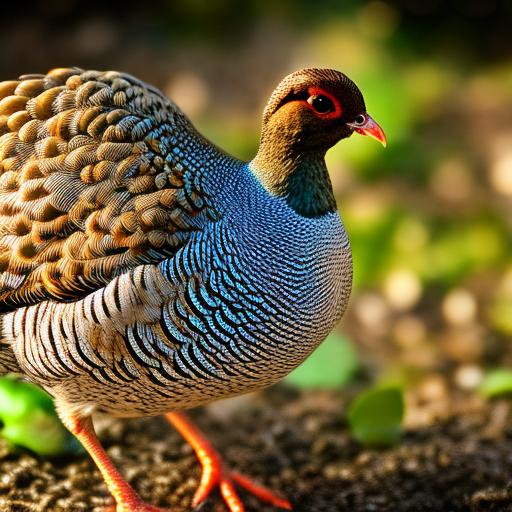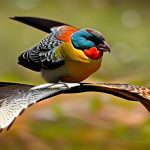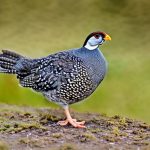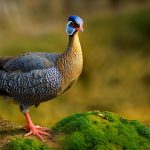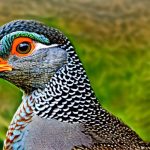One of the most important aspects of caring for animals is creating a safe and warm environment for them to thrive in. This means providing them with a comfortable and secure living space that meets their specific needs. For example, if you are caring for small animals such as rabbits or guinea pigs, it is important to provide them with a spacious and well-ventilated enclosure that is free from drafts and extreme temperatures. Additionally, providing them with plenty of soft bedding and hiding spots will help them feel safe and secure in their environment.
When caring for larger animals such as horses or cows, it is important to provide them with a clean and dry shelter that protects them from the elements. This could be a barn or a run-in shed that provides them with protection from rain, wind, and extreme temperatures. Additionally, ensuring that their living space is free from hazards such as sharp objects or toxic plants will help prevent accidents and keep them safe. Overall, creating a safe and warm environment for animals is essential for their well-being and happiness.
Creating a safe and warm environment for animals also involves providing them with appropriate lighting and ventilation. For example, ensuring that their living space receives plenty of natural light during the day can help regulate their sleep-wake cycle and promote overall health. Additionally, providing them with proper ventilation will help prevent the buildup of harmful gases such as ammonia, which can be detrimental to their respiratory health. Overall, paying attention to the details of their living space and making adjustments as needed will help ensure that they are comfortable and thriving in their environment.
Key Takeaways
- Creating a safe and warm environment is essential for the well-being of animals in captivity.
- Providing proper nutrition and hydration is crucial for maintaining the health of animals.
- Monitoring and managing stress is important to ensure the mental and emotional well-being of animals.
- Protecting animals from predators is necessary to keep them safe and secure.
- Providing proper medical care is essential for addressing any health issues and ensuring the overall well-being of animals.
- Socializing and encouraging natural behavior helps animals thrive in captivity.
- Gradual introduction to the outdoors allows animals to experience natural elements while ensuring their safety.
Providing Proper Nutrition and Hydration
Proper nutrition and hydration are essential for the health and well-being of animals. This means providing them with a balanced diet that meets their specific nutritional needs. For example, herbivorous animals such as rabbits and horses require a diet high in fiber, while carnivorous animals such as cats and dogs require a diet high in protein. Additionally, providing them with access to fresh, clean water at all times is essential for their hydration needs.
When it comes to providing proper nutrition for animals, it is important to consult with a veterinarian or animal nutritionist to ensure that their diet is meeting all of their nutritional requirements. This may involve feeding them a combination of commercial pet food, fresh fruits and vegetables, and supplements as needed. Additionally, monitoring their body condition and adjusting their diet as needed will help prevent obesity or malnutrition.
In addition to providing proper nutrition, it is important to ensure that animals have access to fresh, clean water at all times. This means regularly cleaning and refilling their water bowls or troughs to prevent the buildup of bacteria or algae. Additionally, in hot weather, it is important to provide them with access to shade and cool water to prevent dehydration. Overall, providing proper nutrition and hydration is essential for the health and well-being of animals.
Monitoring and Managing Stress
Animals, like humans, can experience stress in various situations, and it is important to monitor and manage their stress levels to ensure their well-being. Stress can be caused by various factors such as changes in their environment, social interactions, or health issues. It is important to be observant of any changes in behavior or physical symptoms that may indicate that an animal is experiencing stress.
One way to monitor and manage stress in animals is by providing them with a predictable routine and environment. This means feeding them at the same time each day, providing them with regular exercise and social interaction, and maintaining a clean and comfortable living space. Additionally, providing them with enrichment activities such as toys or puzzles can help reduce boredom and stress.
In addition to providing a predictable routine, it is important to be mindful of any changes in an animal’s behavior that may indicate stress. This could include changes in appetite, aggression, or withdrawal from social interactions. If an animal is exhibiting signs of stress, it is important to address the underlying cause and provide them with support and comfort as needed.
Overall, monitoring and managing stress in animals is essential for their well-being. By providing them with a predictable routine, a comfortable living space, and addressing any changes in behavior, we can help ensure that they are happy and healthy.
Protecting from Predators
Protecting animals from predators is essential for their safety and well-being. This means taking proactive measures to prevent predators from accessing their living space and providing them with a secure environment. For example, if you are caring for small animals such as chickens or rabbits, it is important to provide them with a secure enclosure that is protected from predators such as foxes, raccoons, or birds of prey.
When caring for larger animals such as horses or cows, it is important to provide them with a secure pasture or paddock that is protected by fencing or natural barriers. Additionally, providing them with access to a secure shelter such as a barn or run-in shed will help protect them from predators during the night or inclement weather.
In addition to providing a secure living space, it is important to be mindful of any signs of predator activity in the area. This could include tracks, scat, or sightings of predators such as coyotes or mountain lions. By being observant of potential threats, we can take proactive measures to protect animals from harm.
Overall, protecting animals from predators is essential for their safety and well-being. By providing them with a secure living space and being mindful of potential threats, we can help ensure that they are safe from harm.
Providing Proper Medical Care
Providing proper medical care for animals is essential for their health and well-being. This means scheduling regular check-ups with a veterinarian to monitor their overall health and address any potential issues. Additionally, staying up-to-date on vaccinations and preventative care such as parasite control will help prevent illness and disease.
In addition to regular check-ups, it is important to be observant of any changes in an animal’s behavior or physical symptoms that may indicate illness or injury. This could include changes in appetite, energy levels, or mobility. If an animal is exhibiting signs of illness or injury, it is important to seek veterinary care as soon as possible.
In addition to preventative care and addressing illness or injury, it is important to provide animals with proper grooming and dental care. This could include regular brushing, nail trimming, and dental cleanings as needed. By addressing their physical needs, we can help ensure that they are comfortable and healthy.
Overall, providing proper medical care for animals is essential for their health and well-being. By scheduling regular check-ups with a veterinarian, staying up-to-date on vaccinations and preventative care, addressing illness or injury as needed, and providing proper grooming and dental care, we can help ensure that they are thriving.
Socializing and Encouraging Natural Behavior

Socializing animals and encouraging natural behavior is essential for their mental and emotional well-being. This means providing them with opportunities for social interaction with other animals or humans and encouraging natural behaviors such as foraging or play.
When caring for social animals such as dogs or horses, it is important to provide them with opportunities for social interaction with other animals or humans. This could include regular playtime with other dogs at a dog park or trail rides with other horses. Additionally, providing them with positive reinforcement training will help strengthen the bond between the animal and their caregiver.
In addition to social interaction, it is important to encourage natural behaviors in animals. For example, providing enrichment activities such as puzzle toys or hiding treats will encourage natural behaviors such as foraging. Additionally, providing them with opportunities for exercise such as running or swimming will help fulfill their natural instincts.
Overall, socializing animals and encouraging natural behavior is essential for their mental and emotional well-being. By providing them with opportunities for social interaction and encouraging natural behaviors such as foraging or play, we can help ensure that they are happy and fulfilled.
Gradual Introduction to the Outdoors
Gradually introducing animals to the outdoors is essential for their safety and well-being. This means taking proactive measures to acclimate them to the outdoor environment while ensuring that they are protected from potential hazards.
When introducing small animals such as rabbits or guinea pigs to the outdoors, it is important to provide them with a secure enclosure that protects them from predators while allowing them to explore their surroundings. Additionally, gradually increasing their time outdoors will help acclimate them to the new environment while preventing stress or anxiety.
When introducing larger animals such as horses or cows to the outdoors, it is important to provide them with access to a secure pasture or paddock that is protected by fencing or natural barriers. Additionally, gradually increasing their time outdoors will help acclimate them to the new environment while preventing injury or illness.
In addition to gradual introduction, it is important to be mindful of any potential hazards in the outdoor environment such as toxic plants or extreme temperatures. By being observant of potential threats and taking proactive measures to protect animals from harm, we can help ensure that they are safe while enjoying the outdoors.
Overall, gradually introducing animals to the outdoors is essential for their safety and well-being. By taking proactive measures to acclimate them to the outdoor environment while ensuring that they are protected from potential hazards, we can help ensure that they are happy and healthy while enjoying the great outdoors.
Looking to keep your freshly hatched guinea fowl alive and thriving? Check out this insightful article on PoultryWizard for expert tips and advice on raising healthy guinea fowl. From providing the right environment to ensuring proper nutrition, this article covers everything you need to know to give your young guinea fowl the best start in life.
FAQs
What are the basic needs of fresh hatched guinea fowl?
Fresh hatched guinea fowl require warmth, proper nutrition, clean water, and protection from predators. They also need space to move around and exercise.
How can I provide warmth for fresh hatched guinea fowl?
You can provide warmth for fresh hatched guinea fowl by using a heat lamp or a brooder. The temperature should be kept around 95-100 degrees Fahrenheit for the first week and then gradually decreased by 5 degrees each week until they are fully feathered.
What should I feed fresh hatched guinea fowl?
Fresh hatched guinea fowl should be fed a high-quality game bird starter feed with at least 24% protein. You can also provide them with fresh greens, insects, and grit for digestion.
How can I protect fresh hatched guinea fowl from predators?
You can protect fresh hatched guinea fowl from predators by keeping them in a secure coop or brooder with a wire mesh to prevent access from predators. You can also supervise them when they are outside and provide them with shelter.
How can I ensure the health of fresh hatched guinea fowl?
You can ensure the health of fresh hatched guinea fowl by providing them with clean water, a balanced diet, and regular veterinary check-ups. It’s also important to keep their living area clean and free from parasites.
Meet Walter, the feathered-friend fanatic of Florida! Nestled in the sunshine state, Walter struts through life with his feathered companions, clucking his way to happiness. With a coop that’s fancier than a five-star hotel, he’s the Don Juan of the chicken world. When he’s not teaching his hens to do the cha-cha, you’ll find him in a heated debate with his prized rooster, Sir Clucks-a-Lot. Walter’s poultry passion is no yolk; he’s the sunny-side-up guy you never knew you needed in your flock of friends!

